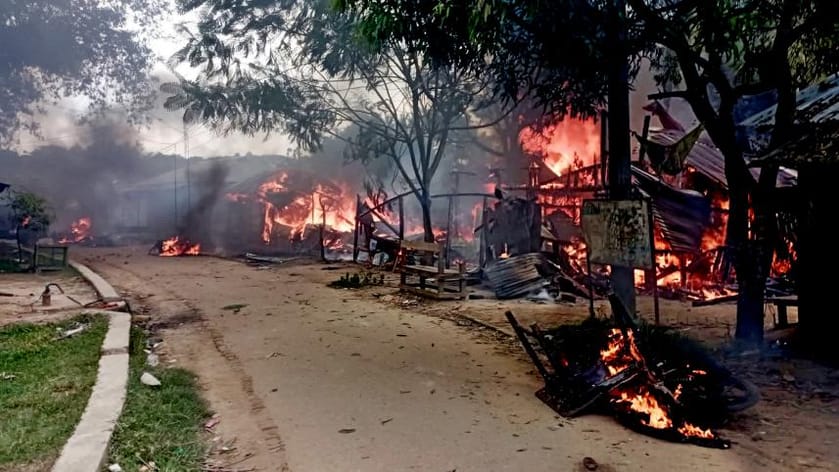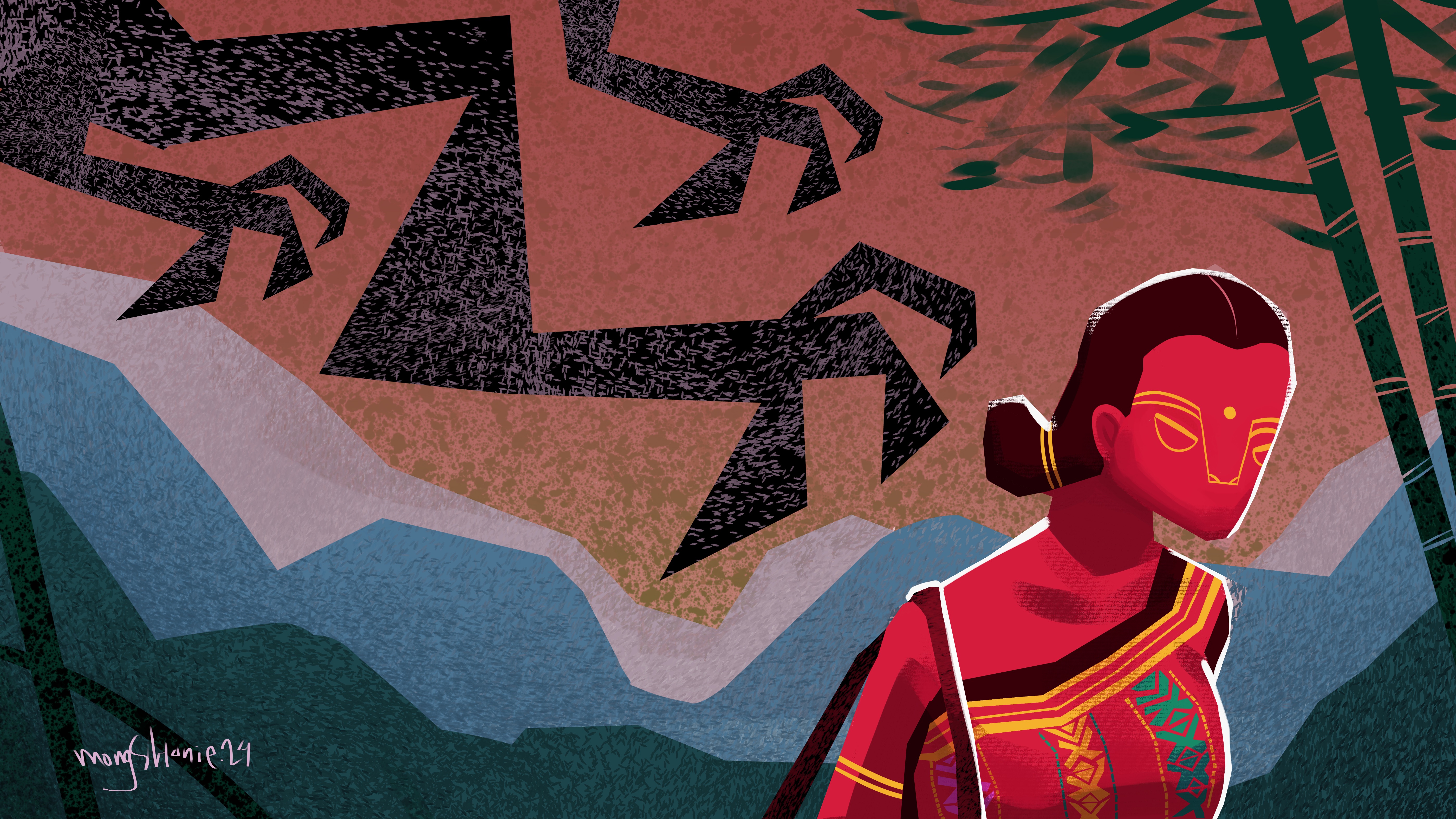Don't let Khagrachhari unrest pass silently

The violence that unfolded in Guimara upazila on September 28 marks a turning point not only for the people of Khagrachhari, but also for the nation's commitment to justice and democratic accountability in the Chittagong Hill Tracts (CHT). The deaths of at least three individuals, with dozens injured and entire neighbourhoods scarred by arson and fear, are not the results of just an "incident." This is a crisis rooted in deeper fractures, worsened by heavy-handed state response and a persistent failure to treat Indigenous lives with equal dignity.
The protests, led by Indigenous student organisations following the gang rape of an eighth-grade Marma girl on September 23, were driven by a legitimate demand: justice. The arrest of a suspect and the initial remand may have signalled some action, but the broader outcry was about more than one case. It was about the pattern: the lack of timely justice in sexual violence cases, especially involving Indigenous women, which has been a persistent issue in the CHT.
On September 28, the situation escalated from a blockade to bloodshed. By mid-afternoon, the Chattogram-Khagrachhari and Khagrachhari-Rangamati highways were choked with burning tyres and logs. Protesters demanded safety and accountability. In response, what they received was gunfire, according to media reports.
Multiple eyewitnesses and human rights organisations allege that live ammunition was used on unarmed protesters by law enforcement and security forces. Social media videos, though unverified, show scenes of chaos, including gunfire, stampedes, and buildings burning. If proven true, this is not crowd control; it is a tragic failure of proportionality and restraint.
Government statements have so far blamed "miscreants" and denied unprovoked firing. On Monday, Home Adviser Lt Gen (retd) Jahangir Alam Chowdhury even alleged that the Khagrachhari unrest is being fuelled by "a vested quarter," provoked by India or fascist groups, who are trying to "disrupt the peaceful atmosphere of Durga Puja for the Hindu community." Sadly, instead of such ambiguous rhetoric, what's needed is a transparent, independent investigation into the deaths of three civilians and the injuries of over a dozen military and police personnel as well as civilians.
Besides, homes and shops in Ramesu Bazar, mostly belonging to the Marma community, now lie in ashes as masked individuals looted and torched them after Sunday's protest turned violent. While affiliations of the attackers remain unverified, the targeting of Indigenous communities suggests more than opportunistic looting. It suggests sinister motives.
Such events are not isolated. For decades, the CHT has been a theatre of mistrust, discrimination, and ethnic tension. The 1997 peace accord has only seen piecemeal implementation in 28 years. Land disputes remain unresolved. Local governance structures remain weak. Military presence continues to dominate civic space, and Indigenous voices remain underrepresented in the very institutions that claim to serve them.
What the Guimara tragedy lays bare is not simply the dangers of protest mismanagement. It reveals a systemic failure to listen. It shows us what happens when the response to grievance is not dialogue, but deployment. When justice is delayed and dissent is silenced, communities begin to believe that the state sees them not as citizens, but as threats.
Let us be clear: violence from any side—be it by protesters or law enforcers—is unacceptable and must be investigated. Nevertheless, the use of deadly force on civilians must be a last resort, not a tactic of first engagement.
Also, we must resist the tendency to reduce this situation to ethnic binaries: Indigenous versus Bangalee, settler versus hill people. Such narratives deepen the divide and prevent the real issue from being addressed: accountability. The demand of the protesters was for justice in a rape case. The mishandling of that demand turned a cry for help into a national headline of horror.
Moving forward, the state must take urgent, visible steps. First, an independent inquiry—preferably under a judicial body with Indigenous representation—must be launched to investigate the use of force, the identities of the deceased, and the arson attacks. Had the National Human Rights Commission (NHRC) been properly functional today, it would have been able to serve this purpose. Second, security deployments must be reviewed and scaled down where possible to prevent further escalation. Third, the government must initiate genuine dialogue with Indigenous student bodies and civil society to establish a path for peaceful grievance resolution.
At the same time, efforts must be made to build trust between communities in the hills. The CHT does not need more surveillance or slogans. It requires consistent justice, equitable development, and a rebalancing of power between the governed and those who govern.
The events of Guimara are a wake-up call. If the state wishes to be seen as the protector of all its citizens—regardless of ethnicity, location or social status—it must act with urgency and fairness. Justice delayed is not only justice denied; in places like Khagrachhari, it can also be the spark that sets the whole region aflame.
Jagaran Chakma is senior staff reporter at The Daily Star.
Views expressed in this article are the author's own.
Follow The Daily Star Opinion on Facebook for the latest opinions, commentaries and analyses by experts and professionals. To contribute your article or letter to The Daily Star Opinion, see our guidelines for submission.




 For all latest news, follow The Daily Star's Google News channel.
For all latest news, follow The Daily Star's Google News channel. 

Comments